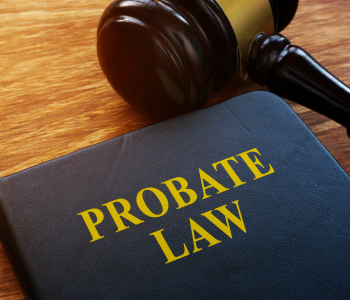Matters Most
New Jersey & New York Estate Planning, Probate, and Elder Law Attorneys
The Chamberlain Law Firm is in the Business of Helping People
The mission of our law firm is to provide our clients with outstanding legal services in the areas of estate planning, elder law, and probate. To do this we help clients put together long-term care plans, draft estate plans, and guide families through probate. We ensure our clients are well informed and know all of their options when planning for the future. We serve the communities surrounding Bergen County, New Jersey, and Rockland County, New York, with several offices for our clients’ convenience.
Estate Planning
Estate Planning is essential for every adult, regardless of age or marital status. We aim to help our clients create a comprehensive estate plan covering the variety of circumstances they may face. Taking time to learn about our clients’ goals and family dynamics helps us achieve this goal. Our process ensures our clients are well prepared for the future and the people they love are protected.
Everyone’s plan is different but they generally accomplish four goals. First, the plan designates people to handle your assets and health care decisions if you are incapacitated or pass away. Second, the plan explains how you want assets distributed after you pass away. Third, the plan describes your desired care should you become incapacitated and cannot make your own decisions. Finally, if you have minor children, the plan designates guardians if you are no longer here to care for them.
When going through the estate planning process with our clients, we explain a number of important topics in understandable terms. Some common questions we hear from clients are: Do I need a will or trust? Who handles my assets if I am incapacitated? What health care directives do I need? Who should I pick as a guardian for my children?
There are usually several different ways to go about the same thing, and estate planning is no different. Everyone has different life circumstances and different ideas on how they want their estate dealt with at death. Our estate planning attorneys are experienced in tailoring a client’s plans to their specific circumstances and wishes. We aim to execute this task in the most precise and cost-effective way possible.
Elder Law and Long-Term Care Planning
We focus on protecting our clients’ hard-earned savings and assets from the potential and actual costs of long-term care. There are usually several ways to do this. We pride ourselves on analyzing a client’s situation, explaining the available options, and collaborating to implement the best plan possible.
Long-term care planning involves considering a variety of factors, including personal preferences, medical needs, and financial resources. Importantly, long-term care planning involves understanding Medicaid’s complicated rules and regulations. Long-term care can be expensive, and its need can arise unexpectedly, so it is crucial to start planning early.
We take several steps to plan for long-term care:
- Assess your needs. We consider your current and potential future health status, as well as your personal preferences for care.
- Explore your options. We help you understand the different types of long-term care available, including in-home care, assisted living, and nursing homes and recommend ways to explore them.
- Consider your finances. We help you determine how you will pay for long-term care. Options may include long-term care insurance, or other resources, such as savings or Medicaid.
- Make a plan. We work with you to craft a plan to pay for long term care, which includes all of the above. This will give you a road map on how to preserve your hard earned savings for your loved ones, whether you need care tomorrow or in the future. This plan may also include estate planning documents.
- Implement the Plan. Putting the plan into action is perhaps more important than crafting the plan. Our attorneys will make sure your plan is implemented correctly.
Pre-Planning v. Emergency Planning
There are two basic ways to approach planning for long term care—pre-planning and emergency planning.
The first step in pre-planning is the same as planning in our other practice areas. That is, learning about our clients’ goals and family dynamics. Next, we construct a plan that prepares for the possibility of needing long-term medical and/or custodial care. Custodial care is non-medical care that many times involves assistance with activities of daily living, such as moving from place to place, toileting, bathing, dressing, eating, and continence. Care can either be physical assistance with these activities or reminders to do them. Care settings can include care in a nursing home or assisted living facility. Or, you may prefer to receive care at home with the help of family, friends, or professional caregivers. Pre-planning aims to get our client in a position to qualify for Medicaid while protecting their assets.
Emergency planning involves planning for long term care when care is immediately required. Many people do not know this, but they can still save a significant amount of their assets even if they need long-term care immediately. We also handle our client’s Medicaid application, which involves an exhaustive review of the past five years’ financial records. Emergency Medicaid planning is not ideal, but it is money well-spent compared to the exorbitant costs of long-term care.
Probate
Dealing with courts after losing a loved one can be overwhelming. Our probate attorneys guide you through the process and make it easier during this difficult time.
Helping Executors and Personal Representatives
A probate attorney is usually retained by the executor, sometimes called a personal representative, of a will who is in need of guidance. When there is a will, the goal is to get the Surrogate’s court to issue a document called letters testamentary. These letters authorize the executor of an estate to act on the estate’s behalf according to the will.
When there is no will, someone needs to step forward to petition the court to issue letters of administration. Thesewill allow an “administrator ” to do the same thing as an executor,that is, to act on behalf of the decedent’s estate. However, rather than following a will, the administrator will distribute the assets according to the laws of the state where the decedent resided.
In New Jersey and New York, probate cases are handled by the Surrogate’s Court. To obtain letters testamentary or letters of administration, a petition needs to be filed with the Surrogate’s Court. This must be done in the county where the decedent lived at the time of their death. Different counties have different requirements, but typically the petition is filed with additional documents. Generally, this includes the decedent’s will, if there was one, and a death certificate.
After issuing letters of testamentary or administration, the executor or administrator needs to gather the decedent’s assets, pay any outstanding debts, and distribute what is left over to the beneficiaries. During this process the administrator/executor can present the letters to financial institutions and other entities to prove their authority to manage the decedent’s assets.
Helping Beneficiaries and Other Interested Individuals
Sometimes The Chamberlain Law Firm is retained by other people who have an interest in an estate. For example, a beneficiary can feel as though the estate is being improperly administered. Or, someone who should be a beneficiary has been cut out. We provide professional assistance to ensure their rights are being protected and they receive the assets due to them.It’s important to note that the probate process can vary depending on the case and the local Surrogate’s Court’s requirements. Our probate attorneys serve clients primarily in Northern New Jersey and in Rockland and Orange Counties, New York, along with the surrounding areas. Please contact us if you have questions about probate or need assistance with obtaining letters.
Practice Areas
Our Reviews See What Our Clients Are Saying
Mr. Chamberlain went above and beyond helping me figure out the next steps in planning for my elderly father’s future. One can imagine how overwhelming and confusing this...
So appreciative of the amazing services Andrew Chamberlain provided me. I needed help with a will. Andrew was very knowledgeable and answered all of my questions. He and...
We worked with Andrew on our wills, power of attorney, and health directives. He was very responsive and the quality of what we received was excellent. It was definitely...
Our Videos
Insights Articles

October 22, 2025 By Andrew J. Chamberlain What Assets Are Subject to New Jersey Inheritance Tax? Not all inherited assets in New Jersey are subject to inheritance tax. The tax depends on the relationship between the decedent and the beneficiary...

October 10, 2025 By Andrew J. Chamberlain Who Gets an Inheritance if a Beneficiary Dies Without a Contingent Beneficiary in New York and New Jersey? Estate planning can be complex, especially when it comes to beneficiary designations. Many people overlook what happens when a named beneficiary dies...

October 8, 2025 By Andrew J. Chamberlain Protecting an Estate from Creditor Claims During Probate in New York When someone passes away in New York, their estate often enters probate, a court-supervised process that validates the will, settles debts, and...






